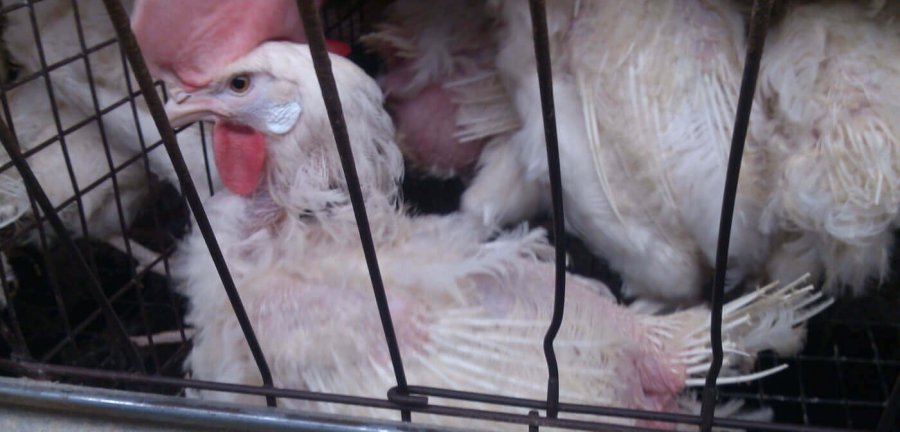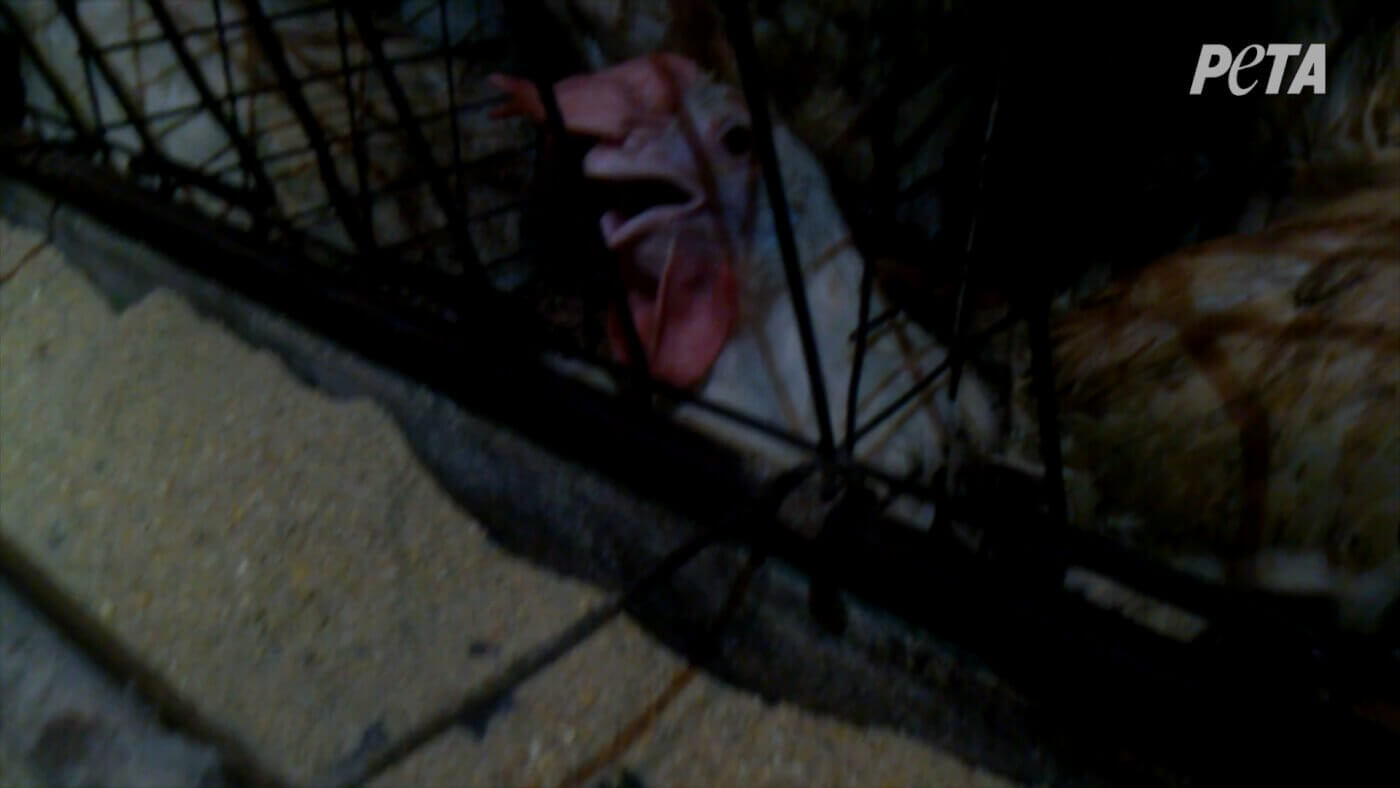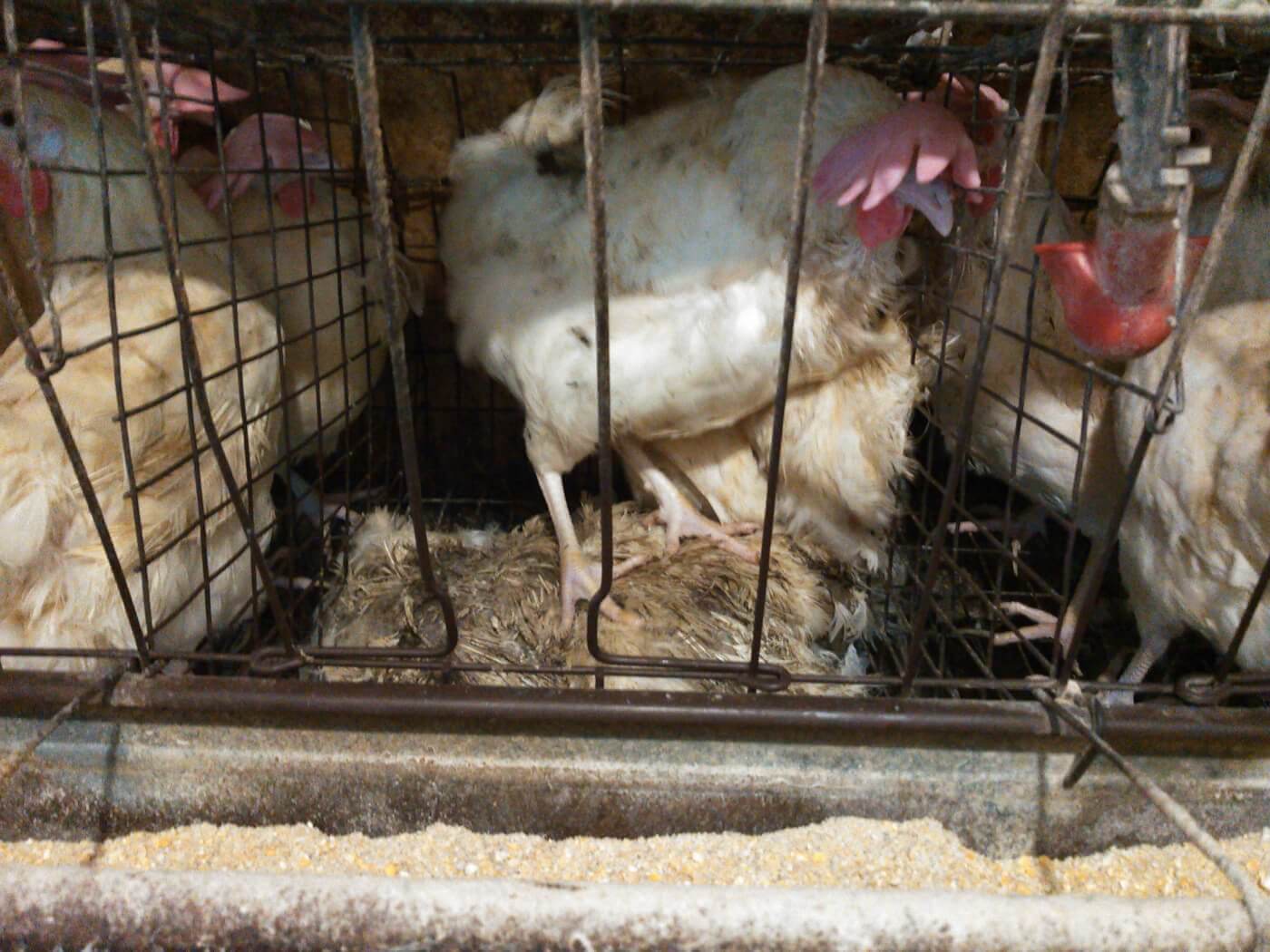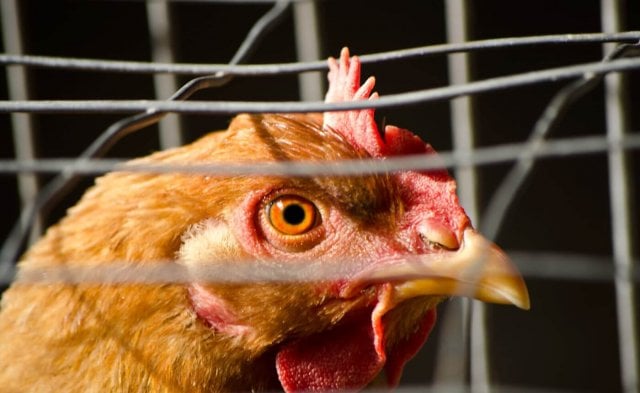By Dan Paden
Recently, on an egg farm in Oklahoma that supplies the largest grocery chain in the United States, nearly 8,000 hens essentially baked to death. In July and August, temperatures in the farm’s massive sheds soared day after day, eventually reaching 106 degrees. Unable to sweat, the chickens panted in a desperate attempt to cool themselves in the stifling conditions. Some had no access to water. It’s a terrifying way to die.
According to a veterinary expert, heatstroke “results in organ damage, respiratory distress, collapse, disorientation, seizures, and death. Heat stress causes immense pain and psychological distress and … agonizing deaths.”
This is just one of the many horrors that you are unwittingly supporting if you eat eggs.
PETA looked into the Oklahoma hen prison which confines up to 1.2 million hens in 11 massive sheds after receiving a whistleblower tip that birds “looked like they were rotting alive” there. Before PETA’s investigation broke, the farm supplied eggs to, among others, The Kroger Co., which sold them under the Kroger brand. (Kroger says that it is taking steps to suspend ties with the farm, but the egg company does operate others.)
Warning: Graphic Content
As is common in the warehouses where egg-laying hens are crammed en masse, these birds had no place to stand, sit or lie down except on the wire flooring of the cages, which dug into their feet and likely caused them to become inflamed. Unable even to spread their wings or establish a social order in such severely cramped and stressful conditions, many hens resorted to pulling out their own feathers.
These intelligent and social birds were packed so closely together in stacked cages that they had no choice but to urinate and defecate on one another. Chickens are clean, fastidious animals who need to preen and take regular dust baths. But in these facilities, they’re forced to live in filth.
PETA’s eyewitness found that many hens had died and begun to decay inside their cages. Survivors were forced to coexist with their rotting cagemates for days on end, which was no doubt extremely distressing.
Dead chickens littered the shed floors and were eventually tossed into manure pits, where feces had accumulated in piles up to 5 feet high. In one pit, the eyewitness found a debilitated hen still alive amid the decaying remains of other chickens. When the eyewitness reported this bird’s plight to a worker, he said that she’d be dead soon anyway and walked away, leaving her to die.
Over several days in early August, workers at the facility yanked more than 49,000 unwanted hens out of their cages, beat their heads against metal boxes, stuffed them into the boxes and then crudely gassed them with carbon dioxide, an acidic gas that can cause extreme pain.
Hens who survived all that were dumped onto a conveyor belt and then into a truck, where they landed amid massive piles of dead birds. Workers slammed survivors against the trucks, beat them with a piece of wood or broke their necks.
Some hens survived even that and were left to die in agony, likely of suffocation, under the bodies of other chickens.
This is not an isolated case.
In June, PETA released a video expose of three egg farms in Abbotsford, British Columbia, showing similar conditions. Dozens of live hens were stuck in mounds of feces teeming with maggots. They had evidently fallen while being moved in or out of the cages and were simply left to die. Many were buried alive in the manure.
Hens trapped in the cramped wire cages above the manure pits fared little better. As in Oklahoma, they were forced to live among rotting corpses. Some were virtually featherless. Ammonia fumes from the accumulated excrement irritated their lungs and burned their skin.
Around the world, billions of gentle hens are suffering in squalid conditions such as these. Even if you’ve eaten eggs your entire life, you can make a difference starting today by refusing to continue supporting such abuse. With new vegan options cropping up every week, making the kind choice to say “no” to eating eggs and other animal-derived foods has never been easier.







